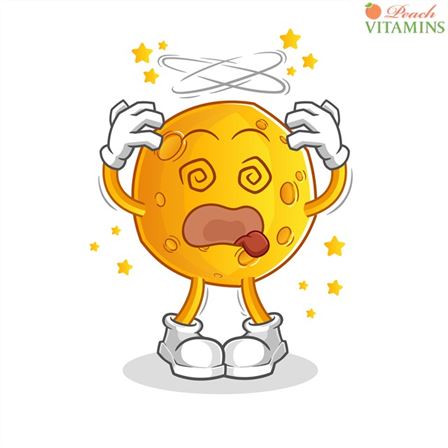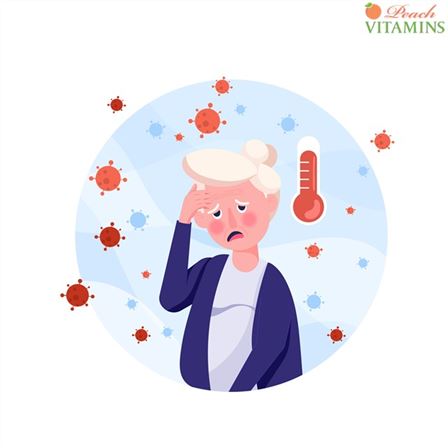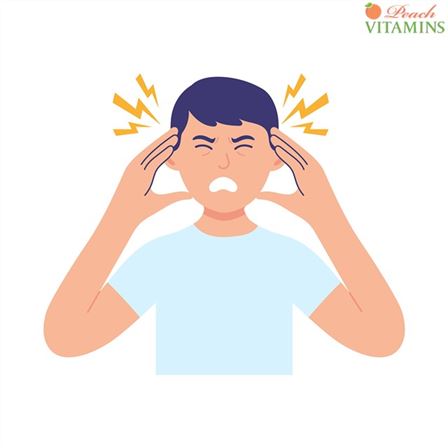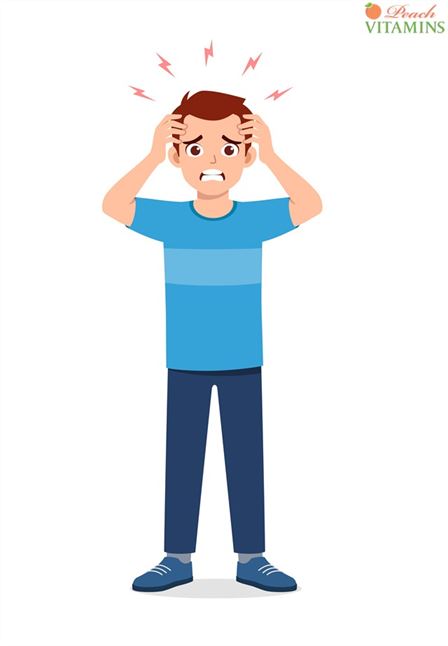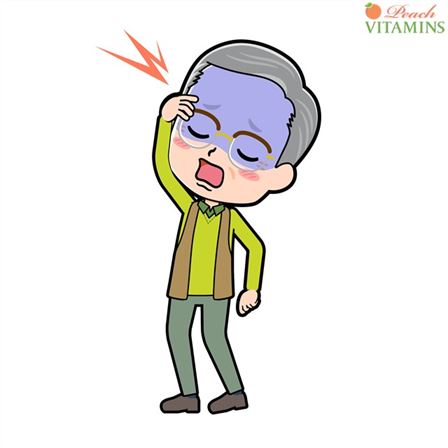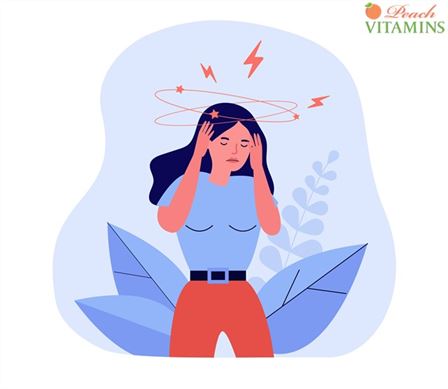Can low potassium cause dizziness? Potassium is found naturally in bananas, tomatoes, potatoes, avocados, spinach, and other leafy greens. But most Americans don’t get enough potassium through food because they eat fewer fruits and vegetables than they should.
A low level of potassium in your body can lead to serious health issues. You may have no symptoms at first, but if you continue to have these symptoms, you could be experiencing hyperkalemia. Symptoms include weakness, fatigue, muscle cramping, nausea, vomiting, confusion, irritability, and anxiety.
If you suspect you are having a problem with your potassium levels, contact your doctor right away. Your doctor can test your blood to determine whether you have a potassium deficiency.
What Is Hypokalemia?
Hypokalemia is a condition in which the body has too little potassium in its cells. This can happen when your kidneys don’t produce enough of this mineral or if you lose more than usual through your urine. It’s also possible that you may have hypokalemia because of certain medications, such as diuretics. In addition, some people with kidney disease develop severe cases of hypokalemia.
Dizziness is a common symptom that people experience at some point in their lives. It can be caused by many different factors, including dehydration, low blood pressure, high blood sugar levels, and even heart problems.
However, there are also other causes of dizziness that aren’t necessarily related to these health conditions. One of these causes is low potassium.
Symptoms Of Not Enough Potassium
Blood potassium levels below 2.5 millimoles per liter are considered abnormal. People who suffer from hypokalemia often report feeling weak, tired, confused, anxious, and nauseated. They may also complain of leg pain, numbness, tingling, twitching, palpitations, shortness of breath, chest tightness, irregular heartbeat, and heartburn. These symptoms usually occur after prolonged periods without eating any solid foods.
Having shortness of breath is one of the main symptoms of potassium deficiency, especially for those who exercise regularly. The reason behind this symptom is that the lack of potassium makes muscles contract less effectively. As a result, oxygen cannot reach all parts of the lungs. Therefore, breathing becomes difficult.
An irregular heartbeat is another common sign of hypokalemia. The electrical impulses sent by the brain to the heart become slower due to the lower amount of potassium in the bloodstream. A person suffering from hypokalemia will likely notice their pulse rate increase during times of stress. However, once the stress passes, the heart rate returns down to normal.
Abnormal heartbeat is not always caused by hypokalemia. Other conditions like thyroid problems, diabetes, high cholesterol, and liver failure can also affect the heart’s rhythm.
Skin rashes are yet another symptom associated with hypokalemia. When the skin gets dry, it tends to itch. If you scratch the area where the rash appears, you might get blisters on top of the itching sensation.
Muscle Cramps and Muscle Weakness
What is the cause of muscle cramping? What can I do if my muscles start to hurt or become weak? How does a person know when they have too much potassium in their body?
Muscle contractions require energy. When there isn’t enough ATP available, then the cell needs to use creatine phosphate instead. Creatine phosphate stores extra energy so that the cell doesn’t need to rely on glucose. Once the cell uses up the stored creatine phosphate, it starts using glucose again.
When we’re exercising, our bodies release adrenaline into the system. Adrenaline increases the production of ATP within the muscle cells.
Heart Palpitations: Causes, Symptoms, and Treatment Options
Heart palpitations can be caused by several different things, such as anxiety or pressure over time. Some people believe that having a healthy diet can help prevent them. Others think that taking medication can reduce the frequency of heart palpitations.
The good news is that there’s no need for drastic changes when trying to get rid of heart palpitations naturally. Instead, try drinking more water, getting plenty of rest, avoiding caffeine, and cutting out alcohol. You should also avoid smoking cigarettes because nicotine has been known to trigger panic attacks.
If your healthcare provider determines that you have heart palpitations, they may prescribe medications to treat the condition. In addition, doctors sometimes recommend lifestyle modifications to improve overall cardiovascular function.
What Does Low Potassium Do To Heart Rhythm?
It can slow down the heart rate. It can also make you feel tired. When this happens, you may want to take some breaks throughout the day.
This could include sitting at home with nothing else to do but relax. Or maybe you would rather go outside and enjoy nature at a specific time of day that suits your needs. Spending time with friends can also give you something to look forward to each day.
Can Drinking Too Much Water Cause Low Potassium?
It’s not common, but it can happen. It would be best if you drank enough to replace what you lose through sweating. Overexercising can lead to excessive fluid loss. This means that you’ll need to consume additional fluids to replenish those lost.
It would help if you didn’t worry, though; most cases of low potassium don’t result in any serious health issues. The symptoms usually disappear after several days.
Most adults only sweat around 1-2 liters per hour while sleeping. So unless you work out every single second of the night, you won’t run out of liquid before morning!
Blood Sugar Level: Causes of Low Blood Sugar Levels
Low potassium and its relationship with your blood sugar levels are often confused. However, both conditions share similar causes and effects.
In fact, many experts agree that high blood sugar levels contribute to the development of hypokalemia. High blood sugar levels increase insulin secretion, which leads to increased urinary excretion of sodium ions. As a result, less salt gets absorbed from the intestines.
As mentioned earlier, potassium plays a vital role in maintaining proper blood flow. If too much sodium leaves the bloodstream, then the amount of potassium available will decrease.
Potassium deficiency can cause dizziness, weakness, nausea, vomiting, headaches, confusion, irritability, and seizures. These symptoms occur due to decreased brain activity.
Can Low Potassium Affect Blood Sugar?
Low potassium can affect blood sugar levels. However, if you’re experiencing high blood sugar levels, then chances are that they aren’t related to low potassium.
In fact, studies show that patients who suffer from both conditions often respond well to treatment. For example, one study found that people with diabetes whose blood glucose was controlled were able to lower their potassium intake without suffering negative effects on their blood sugars.
Can Low Potassium Make You Feel Off-Balance?
Yes! When you have low potassium levels, your body can become confused and not regulate itself. This can lead to feeling off-balance, tiredness, muscle cramps, and even heart problems.
It is important to keep potassium levels in check. But there isn’t much you can do to prevent them from dropping too far. Most people find that they naturally start losing potassium as they age. And since we all get older over time, it’s best to be prepared for this eventuality by taking steps now to ensure that you stay hydrated and eat foods rich in potassium.
Can Potassium Levels Be Checked At Home?
Yes, you can check your potassium levels at home by taking a urine sample. You should have it tested if you are experiencing any symptoms such as muscle cramps, fatigue, nausea, vomiting, diarrhea, confusion, irregular heartbeat, or breathing problems.
Your healthcare practitioner may also recommend testing your potassium levels if you’ve been diagnosed with kidney failure, thyroid disorders, or certain types of cancer. In addition, some medications like ACE inhibitors and beta-blockers can increase your risk of developing hypokalemia.
If you suspect that you have low potassium levels but haven’t yet confirmed your test results, talk to your doctor about whether you should take supplements.
Potassium-Rich Foods: What Are Some Of The Best Foods That Contain Potassium?
What foods contain potassium? How much do they have in them? Which ones should I eat more of? American food today has less than half the amount of potassium compared to our ancestors did. It turns out that most Americans don’t consume enough potassium.
The following list contains some of the highest sources of potassium per serving size. These include fruits, vegetables, grains, dairy products, meats, beans, nuts, seeds, and herbs.
Fruits & Vegetables:
- Apples – 1 cup 567 mg/100 gm
- Bananas – 2 medium bananas (150 grams each ) 810 mg/100 gm
- Beets – ½ cup cooked beet greens 690 mg/100 gm
- Broccoli – 3 cups raw broccoli florets 730 mg/100 gm
- Carrots – ¾ cup carrot juice 495 mg/100 gm
- Cauliflower – 3 cups raw cauliflower florets 670 mg/100 gm
- Peas – 1½ cups frozen peas 940 mg/100 gm
A low-potassium diet will help reduce high blood pressure and improve overall health. However, it is challenging to maintain a healthy level of potassium when eating processed junk food. Instead, focus on consuming plenty of fresh produce and whole foods.
Spicy food tends to cause us to sweat, which helps flush excess sodium from our bodies. So, try adding spices to dishes instead of salt. Also, drink enough water throughout the day so that you’re always well hydrated.
Can you eat too much potassium?
Potassium is an electrolyte that helps maintain fluid balance in your body. Too much potassium can cause muscle cramps. Unless you’re exercising heavily, however, having too little potassium won’t hurt you. Your kidneys regulate how much potassium gets into your bloodstream through excretion.
They remove extra amounts of potassium whenever needed. This process usually happens during times of stress or illness. For example, if you were ill, your kidneys would release extra potassium into your system because they need it to fight off infection.
Conclusion
Low potassium and dizziness are two very common conditions that often go hand-in-hand. If you experience any of the following symptoms listed above, it’s important to consult your healthcare professional. We hope this information was helpful! If you found this information informative. Would you mind subscribing and sharing with others who might find it useful?
Berries may lower blood pressure with help from gut bacteria
Source: (medicalnewstoday.com)
FDA Approves GHB Drug, Xywav, to Treat Rare Sleeping Disorder
Source: (verywellhealth.com)
[wps_products product_id=”1637049335843″ html_template=”product.php”]

